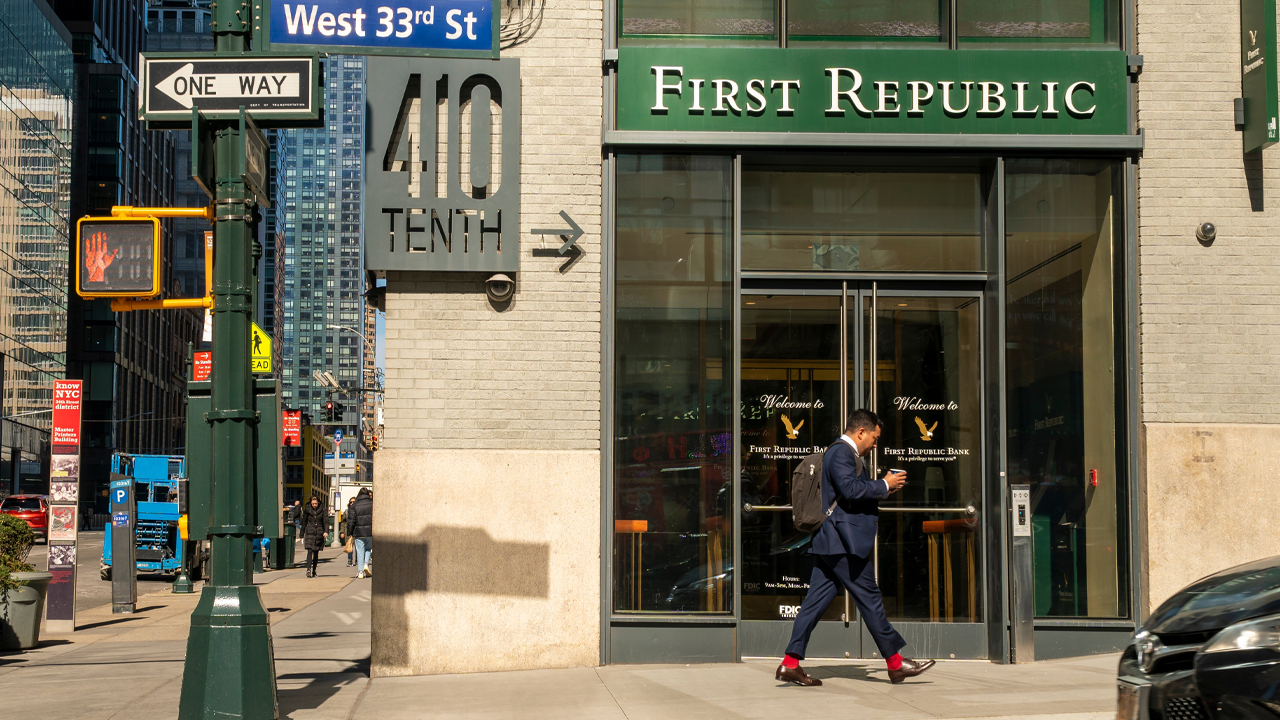US Banking Industry Still Struggling as First Republic Bank Shares Plummet by Over 30% – Bitcoin News
3 min read
In the midst of a tumultuous week, First Republic Bank is struggling to regain its footing in the financial world. Reports have surfaced that the bank is poised to enter government receivership due to a massive outflow of $100 billion in customer withdrawals last month. This has prompted investors to flee the bank, causing its shares to dive-bomb by over 50% on Tuesday.
Shares From America’s 14th Largest Bank Decimated Over the Last Two Days
The situation only worsened as pre-market trading began, and by 11:00 a.m. on Wednesday, First Republic Bank’s shares had fallen by over 30%. The decline in market capitalization has been a major concern for investors, who are increasingly worried about the bank’s stability and future prospects.
SCOOP (1/2): Bankers working w @firstrepublic bank say they expect eventual govt receivership for the ailing bank after it exhausts private sector solutions such as asset sales and finding a buyer, both of which appear difficult. Officials at the big banks believed the Feds were
— Charles Gasparino (@CGasparino) April 25, 2023
Sources close to the matter have indicated that the banks which injected $30 billion into First Republic Bank may need to step in and provide additional assistance. Advisors to the banks have stated that failure to do so would result in a greater cost down the line. It is expected that the advisors to First Republic Bank will make a plea to the larger U.S. banks to provide further support.
The troubled bank has already taken significant steps to address its financial challenges, including the sale of assets and a significant reduction in its workforce, with 7,200 employees being laid off. However, it remains to be seen if these measures will be sufficient to restore investor confidence and ensure the bank’s long-term viability.
The only question remaining about First Republic Bank $FRC is whether or not they make it to Friday when banks are usually closed by the FDIC.pic.twitter.com/wGTYC2mYwi
— Wall Street Silver (@WallStreetSilv) April 25, 2023
The banks’ advisors reportedly disclosed that if they are not helped, the system will “pay more later when it fails,” according to CNBC. “Advisors to First Republic will attempt to cajole the big U.S. banks who’ve already propped it up into doing one more favor,” CNBC’s Hugh Son reported. Others have blamed a specific demographic of First Republic Bank’s customers for its downfall.
“Wealthy clientele such as the affluent individuals that banked at [First Republic] have no loyalty to any particular financial adviser,” Chris Whalen, chairman of Whalen Global Advisors, stated in a note received by CBS News. “First Republic was one of many advisers and service providers to their wealthy customers, people who find products like interest-only mortgages attractive,” Whalen added.
After dropping more than 30% on Wednesday, First Republic Bank’s shares managed to rise and currently, the stock is down between 21% to 26% after the rebound. Still, there’s another half day of Wall Street trading and First Republic Bank stock will be watched closely. Reports further detail that the bank’s stocks were halted due to volatility this afternoon.
What do you think the future holds for First Republic Bank, and do you believe that the steps taken by the bank thus far will be enough to restore investor confidence? Share your thoughts in the comments below.
Image Credits: Shutterstock, Pixabay, Wiki Commons, rblfmr / Shutterstock.com
Disclaimer: This article is for informational purposes only. It is not a direct offer or solicitation of an offer to buy or sell, or a recommendation or endorsement of any products, services, or companies. Bitcoin.com does not provide investment, tax, legal, or accounting advice. Neither the company nor the author is responsible, directly or indirectly, for any damage or loss caused or alleged to be caused by or in connection with the use of or reliance on any content, goods or services mentioned in this article.
Read disclaimer




